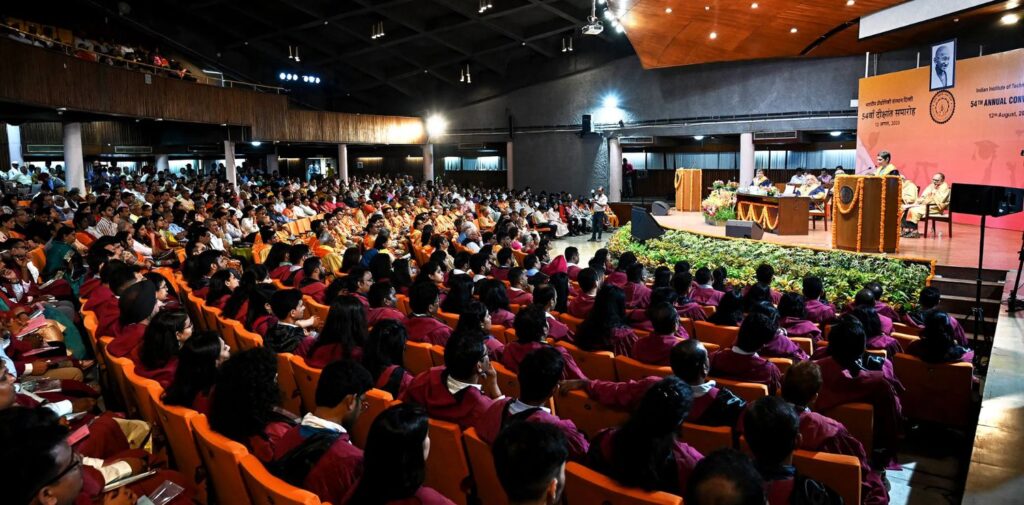India, the land of ancient wisdom and deep-rooted knowledge, is now a global powerhouse in education, producing talented minds that are shaping the future of technology, innovation, and business worldwide. The transformation of India into an educational hub is a remarkable story of progress, vision, and hard work, spanning decades of commitment to quality education and the nurturing of creativity and entrepreneurship.
Foundations of India Education System
India’s journey to becoming an educational giant started with the establishment of its world-class institutions, such as the Indian Institutes of Technology (IITs) and Indian Institutes of Management (IIMs). These institutions, founded in the 1950s and 1960s, were designed to cater to the growing demand for skilled engineers, scientists, and business leaders. Over the years, they have not only fulfilled this need but have also become globally recognized symbols of excellence.
The IITs, in particular, have gained a reputation for producing some of the brightest minds in technology. The IITs have contributed significantly to India’s rapid technological and industrial growth. Graduates of IITs are not only in high demand within India but have also gone on to become leaders in top global companies like Google, Microsoft, and Tesla.

IITs: The Cornerstone of India’s Global Educational Success
The IITs are perhaps the most prestigious academic institutions in India. These institutes have become synonymous with excellence in engineering education, attracting the best and the brightest students from across the country. With a rigorous selection process and an emphasis on research and innovation, IITs have produced engineers, scientists, and entrepreneurs who have made an impact on a global scale.
The success of the IITs has created a ripple effect. Students from IITs have not only excelled in technology but have also played crucial roles in various fields like business, medicine, and social entrepreneurship. This diverse impact has shown the world that Indian education is not only about academic learning but also about preparing students for leadership roles across industries.
One of the key elements of the IITs’ success is their focus on fostering critical thinking and problem-solving skills. Rather than just teaching theory, these institutions encourage students to think creatively and approach challenges from multiple perspectives. This mindset has helped IIT graduates to thrive in global environments, where innovation and adaptability are highly valued.
Rise of Indian Startups and Entrepreneurial Spirit
Beyond traditional education, India education revolution has extended into the startup ecosystem. With a growing focus on entrepreneurship, the country has seen a surge in the number of startups, especially in sectors like technology, finance, and healthcare. This entrepreneurial spirit can be traced back to the educational institutions that encourage students to think outside the box and create solutions for real-world problems.
India is now home to one of the largest and most vibrant startup ecosystems in the world. Cities like Bengaluru, Hyderabad, and Delhi have become major hubs for tech startups. The rise of Indian tech giants like Flipkart, Ola, Paytm, and Zomato has shown that India is not just a place of talent but also of opportunity and innovation. These startups are not only transforming the Indian economy but are also gaining international recognition and attracting global investors.
The country’s educational system has played a significant role in fueling this startup culture. In addition to the IITs, institutions like the Indian School of Business (ISB) and the Indian Institute of Management (IIM) have been instrumental in nurturing the next generation of entrepreneurs. These institutions offer specialized programs that teach students not only the technical skills but also the business acumen needed to launch and scale successful startups.
Moreover, India’s emphasis on practical learning and real-world application has prepared students to tackle the challenges of entrepreneurship. Students are encouraged to undertake internships, work on live projects, and collaborate with industry leaders, providing them with hands-on experience that can be directly applied to their own business ventures.

Emphasis on Technology and Innovation
A key feature of India’s educational revolution is its focus on technology and innovation. The country’s educational institutions have adapted to the changing needs of the global economy by offering cutting-edge programs in fields such as artificial intelligence, machine learning, data science, and blockchain technology. Indian universities and institutes have established strong partnerships with leading global universities and tech companies to provide students with access to the latest research and developments.
The rise of the digital age has also led to an increase in the number of online learning platforms in India. Companies like Byju’s, Unacademy, and Vedantu have revolutionized the way students learn by offering interactive and engaging online courses that cater to a wide range of subjects. These platforms have not only made education more accessible but have also opened doors to new opportunities for students in remote and underserved regions.
The growth of edtech startups in India has made learning more personalized and flexible. Today, students in India have the freedom to choose from a wide variety of courses and learning methods, from traditional classroom settings to online tutorials and virtual classrooms. This accessibility has democratized education and made it possible for students from all backgrounds to pursue their dreams, regardless of geographical or financial limitations.
Impact of Globalization on Indian Education
Globalization has played a crucial role in India’s rise as an educational hub. The country’s education system has become increasingly interconnected with the rest of the world, leading to collaborations, exchange programs, and international research initiatives. Students from around the world are now coming to India to pursue higher education, attracted by the high quality of education, affordability, and the vibrant cultural experience the country offers.
Moreover, many Indian students are also choosing to study abroad, gaining exposure to global perspectives and bringing back valuable knowledge to contribute to India’s educational and technological growth. This exchange of ideas and experiences has enhanced the quality of education in India, making it a more dynamic and forward-thinking place of learning.
Government Initiatives and Reforms
The Indian government has played a key role in transforming the education system. Over the years, various initiatives and reforms have been introduced to improve access to quality education, especially in rural areas. Programs like the “Make in India” initiative and “Skill India” have focused on providing vocational training and skills development to millions of young people, preparing them for the workforce in an increasingly digital economy.
Additionally, the government has made significant investments in infrastructure, creating new universities, research centers, and specialized institutes across the country. Efforts have also been made to increase funding for research and development, encouraging innovation and the creation of new technologies.
The introduction of policies like the National Institutional Ranking Framework (NIRF) has further motivated Indian educational institutions to focus on quality and transparency. As a result, the Indian education system has seen a rise in standards, with more universities and institutions climbing in international rankings each year.

Future of India Education System
Looking ahead, India is poised to continue its ascent as a global educational hub. The country’s rapidly expanding middle class, growing investment in education, and focus on technology and innovation position it as a leader in the global education landscape. The future of India education system will be characterized by greater inclusivity, more global collaborations, and an even stronger focus on preparing students for a rapidly changing world.
India’s success in producing world-class professionals, entrepreneurs, and innovators is a testament to the power of education. By combining traditional values with modern learning methods, India has created an education system that not only meets the demands of the global economy but also nurtures the potential of each individual to achieve greatness.
Conclusion: India Education Revolution
India’s educational revolution has truly been a transformative journey. From the world-renowned IITs to the booming startup culture, India has shown that it is a nation committed to excellence in education. As the world looks toward the future, India is sure to remain a key player in shaping the global educational landscape, continuing to produce the innovators, thinkers, and leaders of tomorrow.
Through perseverance, innovation, and a dedication to learning, India has not only built a powerful education system but has also earned its place as a global educational hub. And as this journey continues, it holds the promise of even greater achievements in the years to come.




